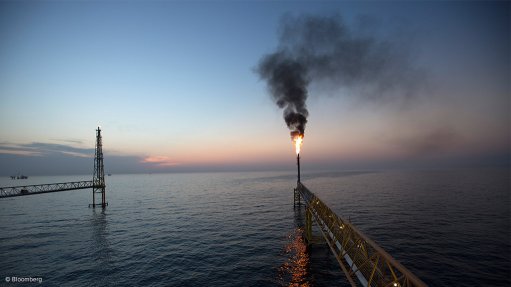
Photo by: Bloomberg
TORONTO (miningweekly.com) – In response to deteriorating market conditions, US diversified miner Freeport-McMoRan (FCX) on Wednesday again cut its capital spending plans for its oil and gas division, also announcing more curtailments in copper and molybdenum output, while it suspended its common stock dividend.
Under pressure from activist investor Carl Icahn, which had recently disclosed an 8.5% stake in FCX, saying the company was undervalued and needed to address several corporate governance and capital issues, FCX stated that, at assumed prices of $2/lb of copper and $45/bl of Brent crude oil for 2016, it expected consolidated operating cash flow would exceed capital expenditure (capex) by more than $600-million.
"As we approach 2016, we are positioning the company for free cash flow generation in a weak commodity price environment and remain focused on actions to reduce debt," senior management said in a statement.
While West Texas Intermediate oil continued to flirt with nine-year lows at its closing price of $37.21/bl on Wednesday, and the Brent crude benchmark closed at $40.26/bl, NYSE-listed FCX announced that its subsidiary Freeport-McMoRan Oil & Gas’ (FM O&G’s) capex for 2016 and 2017 had been reduced further from $2-billion a year in 2016 and 2017, to $1.8-billion in 2016 and $1.2-billion in 2017, including idle rig costs.
The company said it would pursue initiatives to obtain third-party financing or other strategic alternatives to funding oil and gas capital spending within its cash flows and resources.
FM O&G advised that the revised plans would incorporate a reduction in rig utilisation from three Deepwater Gulf of Mexico drill ships, to only one drill ship, while increasing output from third-quarter rates of 150 000 bbl of oil equivalent (BOE) a day, to an average of 159 000 BOE/d in 2016 and 2017.
FM O&G expected to bring eight wells on line in late 2015 and 2016, from its successful tie-back drilling operations at the Holstein Deep, Horn Mountain and King projects, located in the Deepwater Gulf of Mexico. These projects, combined with other initiatives, were expected to add low-cost oil production, enabling cash production costs to decline from $19/BOE in 2015, to less than $16/BOE in 2016 and 2017.
Under the revised plans, FM O&G’s cash flows would substantially fund its capex at $45/bl of Brent crude oil in 2017, FCX stated.
The subsidiary was also engaged in ongoing discussions with its rig vendors and other service providers to secure lower costs and to evaluate opportunities to market idled equipment to third parties.
The FCX board was undertaking a strategic review of its oil and gas business to evaluate alternatives to improve FCX’s financial position, enhance value to FCX shareholders and achieve self-funding of its oil and gas business from its cash flows and resources.
MINING REVIEW
Meanwhile, FCX continued to review its capital projects and costs in an effort to increase its cash flow in a weak commodity price environment and to preserve its resources until market conditions improved once more.
The company announced that it would undertake a full shutdown of its Sierrita mine, in Arizona, and implement adjustments to its operating plans from its primary molybdenum mines, which would increase its curtailments to about 350-million pounds of copper and 34-million pounds of molybdenum a year.
FCX had, in August, announced a 25% reduction in its capital spending for its mining business for 2016 (from $2.7-billion to $2-billion, including $600-million in sustaining capital) and announced curtailments at its North and South America mines.
It also advised that it was evaluating other financing alternatives, the potential sale of minority interests in certain mining assets and other actions to provide added proceeds for debt reduction.
In addition, FCX's board had suspended its yearly common stock dividend of $0.20 a share, providing cash savings of about $240-million a year and further enhancing the struggling company’s liquidity during this period of weak market conditions.